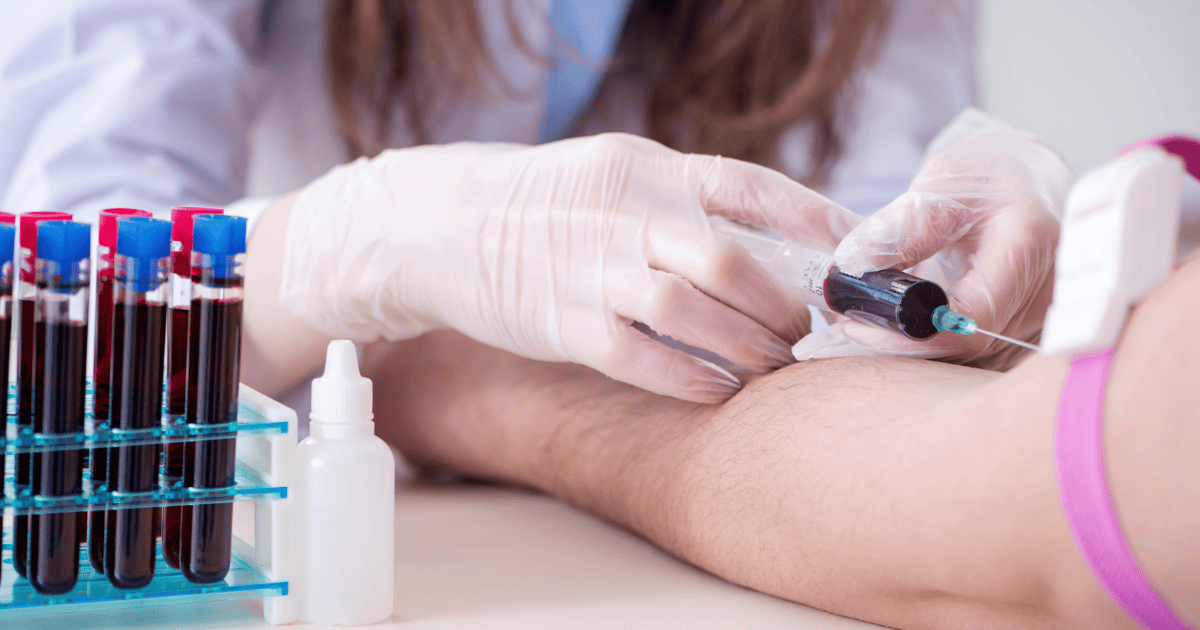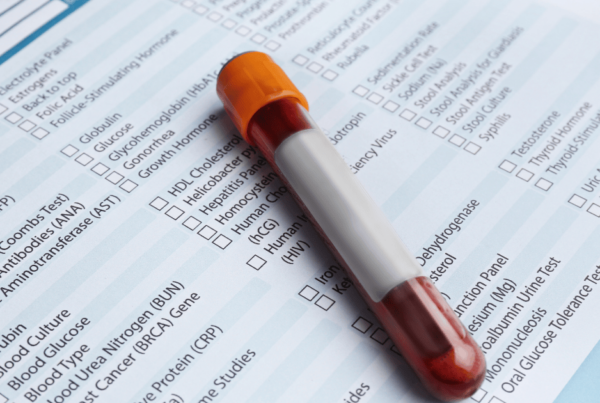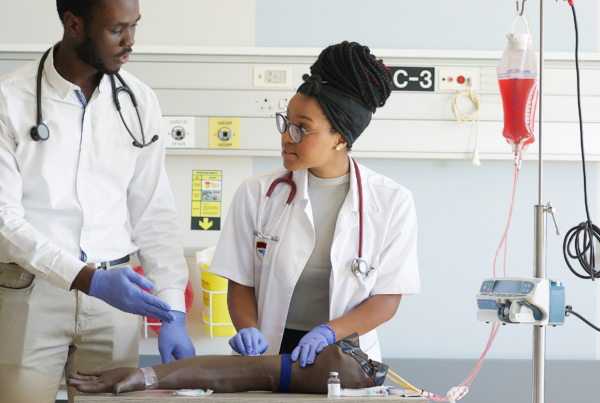Phlebotomy plays a vital role in modern healthcare, but many still wonder: is phlebotomy public health or health science? While phlebotomy is often associated with health science due to its focus on technical skills and clinical procedures, it also has a significant impact on public health, especially in the context of disease prevention and community health initiatives. This unique intersection of both fields highlights phlebotomy’s dual importance in the healthcare system.
Whether you’re considering a career in phlebotomy, switching fields, or simply curious about its role in healthcare, this comprehensive guide is for you. Tailored for aspiring healthcare professionals, career changers, and those seeking to understand phlebotomy’s broader influence, the guide presents a clear, informative, and professional overview of this essential profession.
| Key Takeaways |
|
Phlebotomy Primarily Falls Under Health Science
|
|
Phlebotomy Plays a Vital Role in Public Health
|
|
Career Opportunities are Abundant
|
|
Education and Certification are Key
|
|
Phlebotomy is a Rewarding Field
|
What is Phlebotomy?
At its core, phlebotomy is the practice of collecting blood samples from patients for diagnostic testing, transfusions, research, or donations. A phlebotomist’s duty is varied, involving a combination of technical competence, patient care, and rigorous adherence to safety procedures.
Phlebotomists serve as the critical link between patients and laboratory diagnostics, ensuring that blood samples are collected, handled, and processed accurately. Without their expertise, medical providers would lack the data necessary to diagnose conditions, monitor treatments, or conduct health screenings.
Phlebotomy as Health Science
Phlebotomy falls predominantly under the umbrella of health science, a field dedicated to the study and application of health-related principles and techniques. Health science focuses on using scientific knowledge to improve individual and collective health outcomes.
Key Aspects of Health Science in Phlebotomy
- Technical Precision
- Phlebotomists must master techniques for locating veins, inserting needles, and collecting blood samples without causing unnecessary discomfort to patients.
- Knowledge of anatomy and physiology is crucial, as phlebotomists work with diverse patient populations, including those with challenging vein access.
- Scientific Foundations
- Training programs emphasize subjects like medical terminology, infection control, and specimen handling, ensuring that phlebotomists operate with a strong scientific foundation.
- Phlebotomists contribute directly to diagnostic accuracy by ensuring the integrity of collected specimens.
- Clinical Application
- Blood draws are essential for diagnosing conditions ranging from anemia to diabetes, monitoring chronic diseases, and conducting routine health check-ups.
- Phlebotomists work closely with laboratory technicians and medical teams, demonstrating their integration into the clinical care continuum.
By focusing on these areas, phlebotomy solidifies its role as a specialized branch of health science.
Phlebotomy’s Role in Public Health
While phlebotomy is rooted in health science, its impact extends into public health, which aims to protect and improve the health of populations. Public health initiatives often rely on data derived from blood samples, making phlebotomists indispensable to large-scale health efforts.
Public Health Contributions
- Community Screenings
- Phlebotomists play a vital role in health screenings for conditions such as hypertension, diabetes, and high cholesterol. These screenings help identify at-risk populations and enable early interventions.
- Epidemiological Studies
- During outbreaks or pandemics, phlebotomists assist in collecting blood samples for research, helping epidemiologists track disease patterns and develop strategies for prevention.
- Blood Donation Campaigns
- Phlebotomists often staff blood drives, ensuring that donated blood is collected safely and efficiently. This supports critical public health resources, such as blood banks and transfusion services.
- Access to Care
- In underserved or rural areas, phlebotomists provide essential services that ensure communities have access to diagnostic tools and preventive care.
Through these activities, phlebotomy demonstrates its alignment with public health goals.
Work Environment and Career Path of Phlebotomists
Phlebotomists work in a variety of settings, reflecting the versatility of their skills. These include:
- Hospitals and clinics.
- Blood donation centers.
- Medical laboratories.
- Research institutions.
- Public health organizations.
The work environment is fast-paced and patient-centered, requiring adaptability and strong interpersonal skills.
Skills Required for Success
- Technical Competence
- Fine motor skills and attention to detail are critical for performing blood draws effectively.
- Interpersonal Skills
- Phlebotomists must comfort patients who are nervous about needles and explain procedures clearly.
- Adherence to Protocols
- Following safety and infection control protocols is non-negotiable to protect both patients and healthcare providers.
Educational Requirements for Phlebotomists
Being a phlebotomist requires a mix of education, training, and certification.
Steps to Becoming a Phlebotomist
- High School Diploma or Equivalent
- A strong foundation in science and math courses is beneficial.
- Phlebotomy Training Program
- Programs typically last 3–12 months and cover topics like anatomy, venipuncture techniques, and specimen handling.
- Certification
- While not often required, certification improves credibility and career chances. Organizations offering certification include:
- The American Society of Clinical Pathologists (ASCP).
- The National Healthcareer Association (NHA).
- The American Medical Technologists (AMT).
- While not often required, certification improves credibility and career chances. Organizations offering certification include:
Career Outlook and Advancement Opportunities
The demand for phlebotomists is growing rapidly, with the Bureau of Labor Statistics projecting faster-than-average job growth. This demand is fueled by:
- An aging population requiring regular diagnostic testing.
- Increased access to healthcare services.
- Expanded use of blood tests in preventive care.
Career Advancement
Phlebotomists can pursue specialized certifications or transition into related roles, such as:
- Medical Laboratory Technician.
- Medical Assistant.
- Registered Nurse (RN).
These pathways allow for professional growth and increased earning potential.
Phlebotomy and Emerging Trends
Phlebotomy is a constantly evolving field in response to technology improvements and changing healthcare needs.
Key Trends
- Point-of-Care Testing
- Portable devices are enabling faster diagnostic results, requiring phlebotomists to adapt their skills.
- Telehealth Integration
- Mobile phlebotomy services are expanding, allowing patients to receive care at home.
- Data-Driven Healthcare
- Phlebotomists play a role in supporting personalized medicine by providing critical data for genomic and biomarker analysis.
These trends highlight the dynamic nature of phlebotomy and its relevance in modern healthcare.
FAQs About Phlebotomy
Is phlebotomy a good career choice?
Yes! Competitive pay, prospects for growth, and a steady career with increasing demand are all provided by phlebotomy.. It’s ideal for individuals interested in healthcare but seeking a quicker path to entry than other medical professions.
What requirements are required to become a phlebotomist?
You’ll need a high school diploma or equivalent, completion of a phlebotomy training program, and often certification through organizations like the American Society of Clinical Pathologists (ASCP) or National Healthcareer Association (NHA).
Where do phlebotomists typically work?
Phlebotomists work in hospitals, clinics, diagnostic laboratories, blood donation centers, public health organizations, and even in mobile or home-based care settings.
How does phlebotomy contribute to public health?
Phlebotomists support public health by collecting data for epidemiological studies, conducting health screenings, and facilitating blood donations for emergency preparedness.
Can phlebotomists specialize or advance in their careers?
Absolutely! Phlebotomists can specialize in areas like donor phlebotomy or laboratory analysis. Many also advance to roles like medical assistants, lab technicians, or registered nurses through additional education and experience.
Is phlebotomy stressful?
While phlebotomy can be demanding due to its fast-paced environment and patient interaction, many find it rewarding because of the opportunity to make a positive impact on patient care and community health.
How much time does it take to earn a phlebotomy certification?
Most phlebotomy training programs last between 3 to 12 months, depending on the institution and program type. Certification may require additional study and testing.
Conclusion: Is Phlebotomy Public Health or Health Science?
Phlebotomy is primarily a branch of health science, emphasizing technical expertise, clinical accuracy, and patient-centered care. However, its role in supporting public health initiatives—such as community screenings and blood drives—cannot be overlooked.
This dual impact makes phlebotomy a rewarding and impactful career path for those who want to contribute to individual and community health.
Start your phlebotomy career today. Make a difference in healthcare!
At Phlebotomy Now School, we prepare future phlebotomists with the skills and knowledge needed to excel in both health science and public health roles.
Whether you’re just starting your journey or looking to enhance your expertise, we’re here to support you every step of the way.







